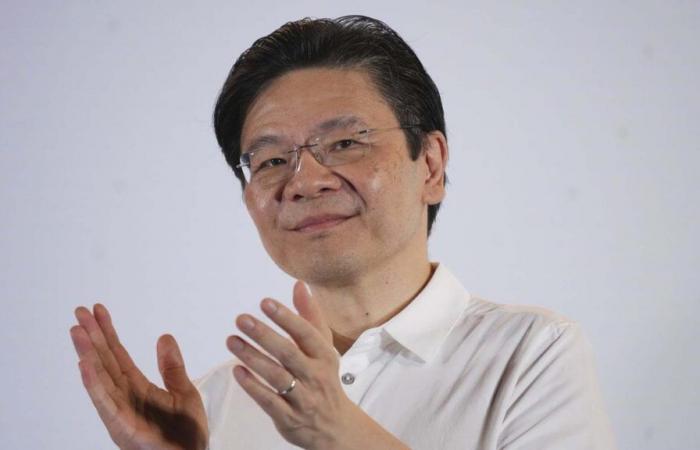The election department announced that the PAP had won 82 seats in Parliament after the stripping of the votes. The party had previously won five seats without opposition, which gives it 87 seats out of a total of 97. The workers’ party, opposition party, retained its 10 seats.
PAP’s popular vote reached 65.6 %, up compared to an almost 61 % of 61 % in the 2020 elections. PAP support supporters, in power in Singapore since 1959, have gathered in stadiums, waving flags and applauding.
An economist trained in the United States and also Minister of Finance, Lawrence Wong pleaded for a strong mandate in order to guide Singapore, a country dependent on trade, in the face of economic difficulties which followed the increases in customs duties decided by President Donald Trump. The government has revised its growth forecasts and warned against a possible recession.
Mr. Wong, 52, said he was honored and grateful to the solid mandate granted to PAP. He recognized the voters’ wish to have more alternative votes to the government, but said that a solid PAP team was necessary to meet the challenges to come.
“The results will place Singapore in a better position to face this turbulent world,” he said.
Eugene Tan, professor of law at the University of Management of Singapore, said that the failure of the opposition to progress more after 2020 was a surprise. “The Singaporean voters have kept silent. Today, they have shown their confidence to a party that has kept its promises over the years, “he said.
Lawrence Wong succeeded Lee Hsien Loong to become the fourth leader of the city-state. The Lee resigned in May 2024 after two decades at the head of the city-state, but remained within the government as the main minister. His retirement as Prime Minister put an end to a family dynasty founded by his father, Lee Kuan Yew, the first leader of Singapore, who, in 31 years in mandate, has made this former colonial lowland one of the richest nations in the world.
PAP is perceived as a model of stability and prosperity, but strict government control and the increase in the cost of living in one of the most expensive cities in the world have also resulted in increasing dissatisfaction, especially among young voters.
A difficult struggle
The enlargement of income disparities, the growing inaccessibility of housing, overcrowding and restrictions on freedom of expression have weakened the grip of PAP on power.
The opposition affirms that a stronger presence in parliament will allow a more balanced political system and greater empowerment. However, it collides with an arduous task, often hampered by the lack of resources, the fragmentation of support and the lack of unity. Critics said that the electoral division also offered an advantage to the PAP.
Pritam Singh, head of the workers’ party, acknowledged that the struggle was difficult and has committed to continuing the fight for a more balanced parliament. “The painting is a virgin, we are taking over the work tomorrow and off we go,” he said.
The American government congratulated Singapore and Mr. Wong.
In a press release, the Secretary of State, Marco Rubio, argued that the United States and Singapore shared a “solid and sustainable strategic partnership and a commitment to a safe, free and prosperous Indo-Pacific region” for almost 60 years.
If the workers’ party has failed to extend its presence, it has consolidated its support thanks to an increase in its share of votes in certain regions, explained Bridget Welsh, a political analyst for Southeast Asia. Other small opposition parties, on the other hand, failed to break through.
According to Ms. Welsh, voters have opted for stability in the face of concerns related to global volatility due to American customs duties. The more accessible leadership of Mr. Wong, who was able to mobilize young voters, and his efforts to renew the PAP by integrating around a third of new candidates have also contributed to switching the votes, she added.






